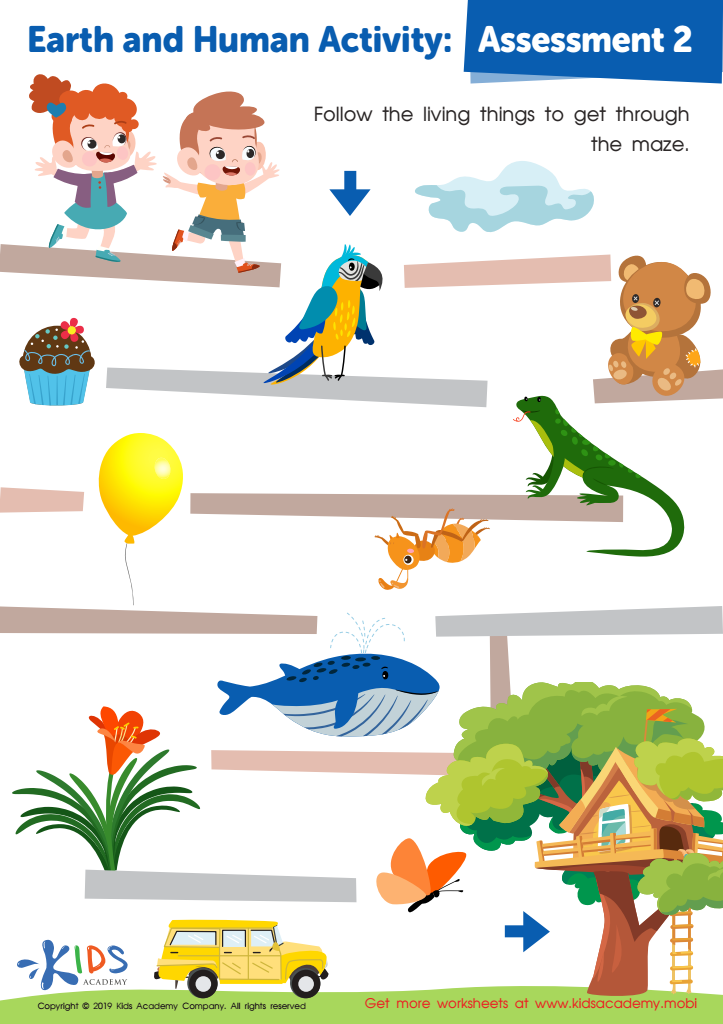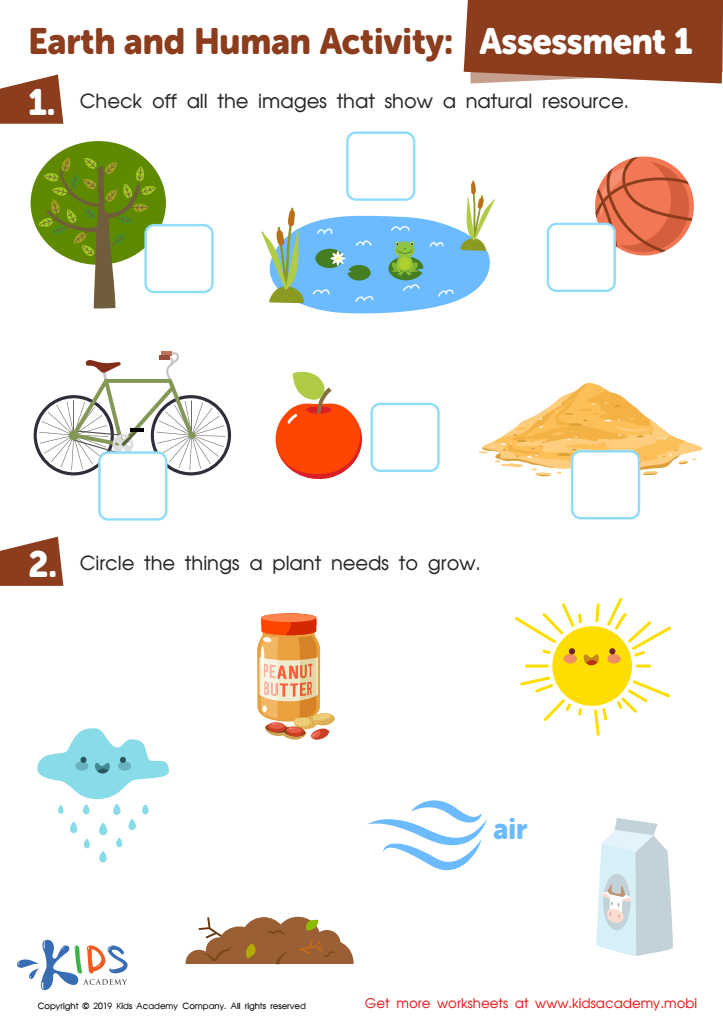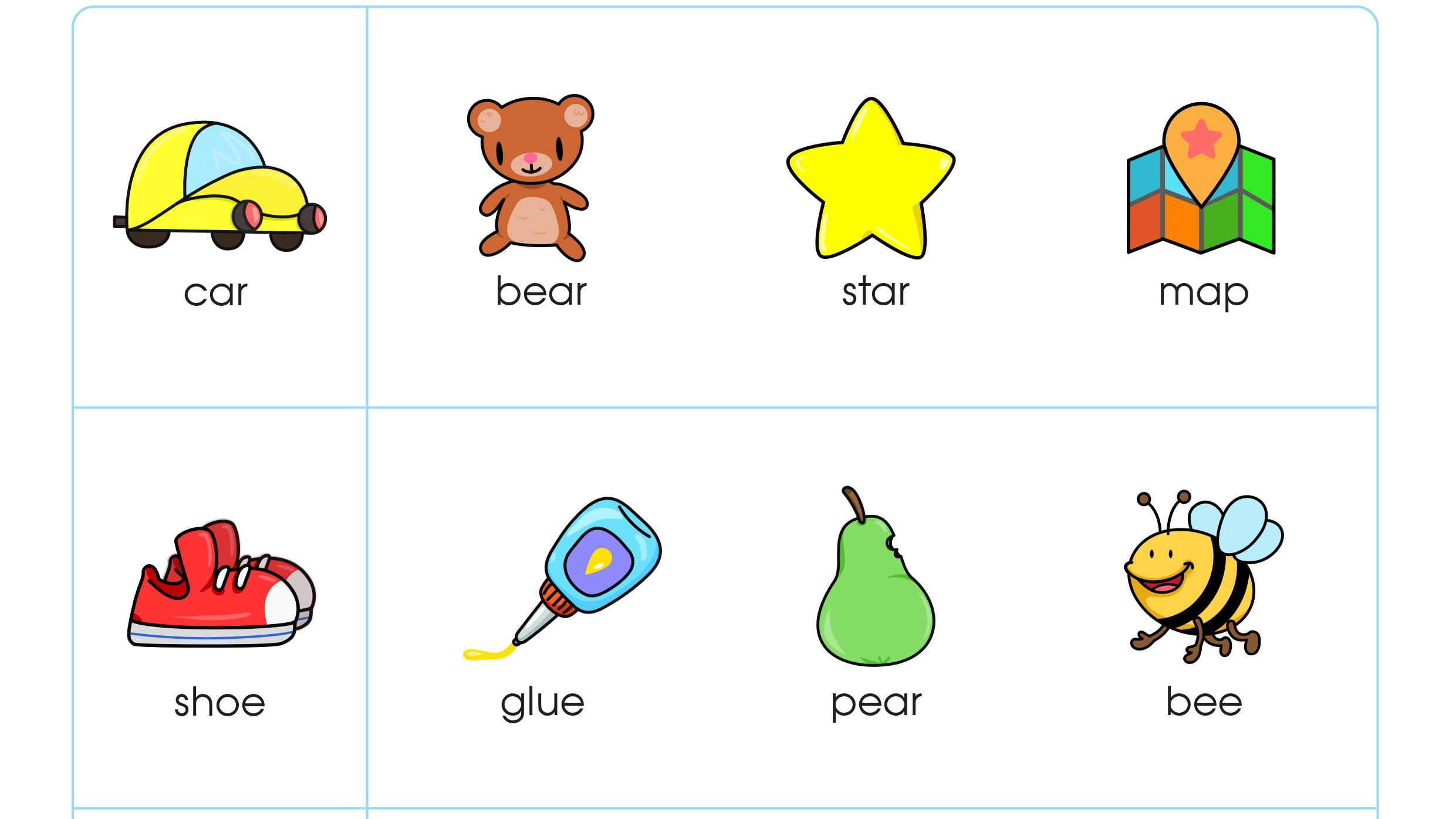Plants and Animals worksheets activities for Ages 3-8
3 filtered results
-
From - To
Explore our engaging Plants and Animals worksheets designed for children ages 3 to 8! Perfect for young learners, these fun and educational activities help develop essential skills such as identification, classification, and observation. Our interactive worksheets feature vibrant illustrations and simple instructions that captivate children's interest while teaching them about the diverse world of flora and fauna. From matching activities to spotting differences, these resources promote critical thinking and creativity. Ideal for home schooling, classroom use, or extracurricular learning, our Plants and Animals worksheets inspire curiosity and a love for nature in every child. Dive into the adventure of learning today!


Earth and Human Activity: Assessment 2 Worksheet


Earth and Human Activity: Assessment 1 Worksheet


Ecosystems: Assessment 2 Worksheet
Plants and animals activities for children aged 3-8 are vital for their developmental growth and understanding of the natural world. Engaging in such activities fosters curiosity, encourages exploration, and enhances critical thinking skills. At an early age, children are naturally inquisitive about their surroundings. Introduce them to the wonders of plants and animals helps satisfy that curiosity, promoting a lifelong love for nature.
These activities also support essential skills such as observation, questioning, and classification. For example, identifying different plants and animals can improve their vocabulary and understanding of ecological concepts. Moreover, interacting with nature cultivates a sense of responsibility and stewardship towards the environment.
From a social-emotional perspective, caring for plants or observing animals nurtures empathy and mindfulness. Children learn to appreciate living things, understanding the interdependence that characterizes ecosystems. Hands-on experiences with plants and animals also provide opportunities for cooperative play, fostering teamwork and communication skills.
Ultimately, introducing young children to the world of plants and animals not only enriches their educational experience but also lays the groundwork for sustainable practices and environmental awareness in the future. Parents and teachers play a crucial role in facilitating these experiences, ensuring that children develop a strong connection to the natural world.

 Assign to My Students
Assign to My Students



















